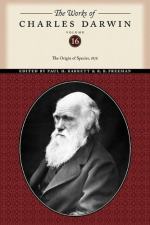In the case of animals with separate sexes, facility in preventing crosses is an important element of success in the formation of new races,—at least, in a country which is already stocked with other races. In this respect enclosure of the land plays a part. Wandering savages or the inhabitants of open plains rarely possess more than one breed of the same species. Pigeons can be mated for life, and this is a great convenience to the fancier, for thus many races may be kept true, though mingled in the same aviary; and this circumstance must have largely favoured the improvement and formation of new breeds. Pigeons, I may add, can be propagated in great numbers and at a very quick rate, and inferior birds may be freely rejected, as when killed they serve for food. On the other hand, cats, from their nocturnal rambling habits, cannot be matched, and, although so much valued by women and children, we hardly ever see a distinct breed kept up; such breeds as we do sometimes see are almost always imported from some other country, often from islands. Although I do not doubt that some domestic animals vary less than others, yet the rarity or absence of distinct breeds of the cat, the donkey, peacock, goose, etc., may be attributed in main part to selection not having been brought into play: in cats, from the difficulty in pairing them; in donkeys, from only a few being kept by poor people, and little attention paid to their breeding; in peacocks, from not being very easily reared and a large stock not kept; in geese, from being valuable only for two purposes, food and feathers, and more especially from no pleasure having been felt in the display of distinct breeds.
To sum up on the origin of our Domestic Races of animals and plants. I believe that the conditions of life, from their action on the reproductive system, are so far of the highest importance as causing variability. I do not believe that variability is an inherent and necessary contingency, under all circumstances, with all organic beings, as some authors have thought. The effects of variability are modified by various




